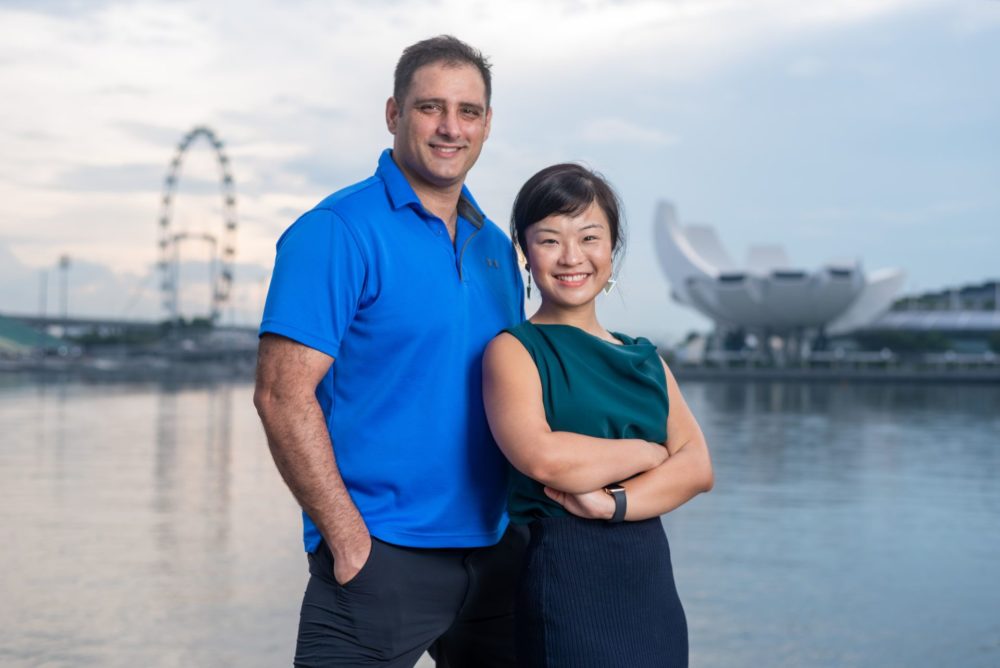TurtleTree Labs, a Singaporean startup producing ‘lab-grown’ milk, has raised $6.2 million in a pre-Series A funding round.
Existing investors participating in the round included Green Monday Ventures — part of Hong Kong’s alt-protein focused Green Monday Group — and Saudi Arabia’s KBW Ventures. Canada’s Eat Beyond Global and Switzerland’s Verso Capital came on board as first-time backers, alongside a number of other existing and new investors whose identities were not disclosed by the startup.
“Eat Beyond Global and Verso Capital have a strong track record in identifying and investing in innovative foodtech startups,” TurtleTree Labs co-founder and CEO Fengru Lin tells AFN.
“With their investment, TurtleTree Labs will be able to lean on their expertise in the foodtech sector, and scale to take advantage of the global ecosystem that they have helped create.”
Moreover, as part of his firm’s return investment, KBW Ventures founder Prince Khaled bin Alwaleed bin Talal Al Saud will join the TurtleTree Labs team in an advisory role to help it “shape new market growth plans.”
TurtleTree is culturing milk in the lab using mammalian cells. It has initially focused on developing a ‘human-free’ version of breastmilk for babies, as well as ‘animal-free’ growing-up milk for toddlers.
However, it is gradually expanding its focus to other corners of the human nutrition and dairy industries. As is the case with cell-based meat, the idea is that ‘lab-grown’ milk can have a positive impact on the planet’s health by reducing the footprint of resource-hungry activities like dairy farming – while addressing issues about the welfare of dairy animals at the same time.
“The vision of TurtleTree Labs is to create a truly sustainable and cruelty-free food system,” Max Rye, the startup’s co-founder and chief strategist, said in a statement announcing the pre-Series A funding.
The proceeds of the round will go towards R&D around component compounds of milk, including “functional, bioactive proteins and complex sugars found in human milk [with] potential benefits in gut and brain health,” the statement said.
Lin says that she and her team are “looking to address the nutritional needs of our elderly and adults with our future products,” marking a move beyond infant nutrition.
“These nutraceutical products [will] contain high-value milk components with health benefits, that we are accelerating research on,” she adds.
Eat Beyond CEO Patrick Morris says the fund’s goal is to open up the “thriving” alt-protein startup space to retail investors. Find out how here
TurtleTree closed a $3.2 million Seed round in June this year, with Australia’s Artesian, US-based New Luna Ventures, and UK-based CPT Capital among the parties investing alongside Green Monday Ventures and KBW Ventures. Lever VC and K2 Global are early backers, having participated in its January 2020 pre-Seed raise.
Speaking to AFN at the time, Rye explained that the startup was pursuing a B2B model, and was already working with “four or five” of the world’s largest infant milk companies.
“The earlier markets are going to be around infant nutrition. But as we bring prices down, the next verticals will be in the dairy industry in general,” he said, adding that TurtleTree had initially focused on baby and ‘growing-up’ milk because of the higher price point they sell at compared to animal-derived milks consumed by adults.
By June, the startup had managed to push the price of its cultured milk down to $30 per liter, from around $180 per liter at the end of 2019.
Lin says that TurtleTree was “fortunate” to get government permission to continue its R&D work during Singapore’s Covid-19 ‘circuit breaker’ lockdown, which saw most businesses in the city-state shuttered between April and June this year.
“Covid-19 also made many investors realise the need to invest in startups focused on innovating ways to achieve food security,” she adds.
With Singapore’s world-first regulatory approval of a cultured protein product — Eat Just‘s cell-based chicken meat — earlier this month, Lin says the TurtleTree team has “a newfound enthusiasm and hope” that its products can soon obtain the same kinds of clearances, both in its home country and farther afield.
“We are working closely with the regulatory agencies to determine the exact requirements and timeline.”
Got a news tip? Email me at [email protected] or find me on Twitter at @jacknwellis





